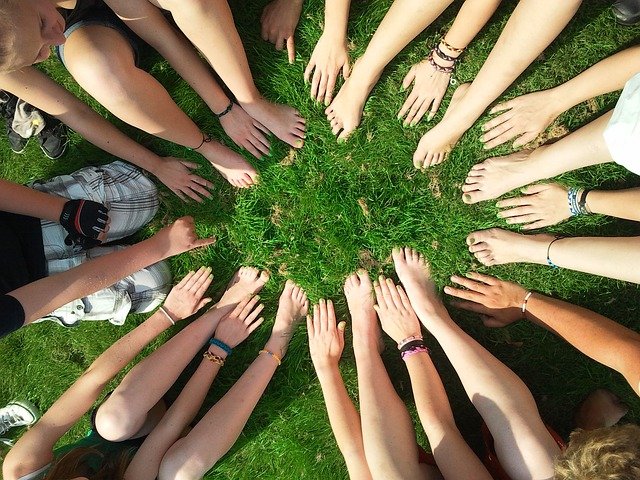With over 6 billion people on Earth, you’d think it would be easy to find your tribe of others who get you and love you just the way you are. Yet, loneliness seems to be a prevalent human condition these days with death by suicide and severe addiction affecting us in epidemic proportions.
The statistics seem bleak, yet, you don’t have to be one of them.
You.
Don’t.
Have.
To.
Be.
One.
Of.
Them.
Granted, it can be hard to take the first step and go into a room of strangers and trust them with the fragility of the person known as You. In all likelihood, you’ve been battered, metaphorically or literally, by toxic people and it’s just plain hard to trust.

There’s a crack in everything; that’s how light gets in. Yet, the Light of You deserves and needs to be seen. Often, the way to open the door to that light is to be with others who have been where you are.
Peer support groups are a healing way to re-engage in this business known as relationships with others. Many peer support groups, such as Alcoholics Anonymous or Al-Anon, have been around for decades and have worked out guidelines which assist the participants in knowing how to create an emotionally healthy environment.
How do you know which support group is for you?
Of course, if you have a hobby then finding a club is as easy as checking your local “Meet-up” or “Eventbrite.” Chess clubs, dance clubs, airplane clubs, you name it there’s a group for that. It’s a good way to engage in superficial conversation of a topic of a common interest. It’s a tribe for conversation with structure.
If you own a business, you can find business clubs such as Mastermind Groups, Chambers of Commerce, or Toastmasters. These kinds of clubs can help you build your income and learn skills to run your business.
In some time, though, you may find yourself with a life experience which is health-related and provokes deep emotions, such as cancer, depression, a heart attack, loving a person with addiction or loving a person who died from addiction or suicide. It’s a health concern which interferes with your activities of daily living or, perhaps, may even have threatened your or a loved one’s life. If that’s the situation then you need a tribe for that specific concern.
Mental Health America houses a comprehensive list of support groups. You can click here, to get to it.
It’s trial and error to get it right
Not every club which is set up to discuss difficult experiences may be a good fit for you. And so it can take trial and error before you find yourself clicking in. If you’re in a large city, you have more options to choose from in finding a suitable group. Living in a small town has limitations. Yet, often times the stability of a small group of people who weekly gather to discuss meaningful experiences can offer an intimacy lacking in other circles.
Face-to-face groups provide an in-person relationship yet are limited by their geography. On-line groups give people world wide the chance to share their thoughts. Listening and engaging with people from other cultures can provide a unique perspective which might be what you need for positively reframing concerns which took you down the rabbit hole of loneliness and despair.
Types of Support Groups
Support groups are divided into different types. They include:
Peer-led support groups. They may be sponsored by an organization, which provides training to the peer leaders. The leaders, though, also manage the health concern for themselves.
Some peer support groups are led by professionals. They are a hybrid between group therapy and peer support. re: Mind, depression bipolar support in the Houston area operates on this model. The facilitators are licensed professional counselors but they do not provide therapy for the group. They facilitate the group to keep members focused on the topic and to refer to other medical facilities should a participant have an active bipolar episode.
Educational. In this type of group, a presenter provides education about the specific health concern, with a question-answer session afterwards.
Group Therapy. Group therapy support groups are led and directed by professional counselors or social workers. They are usually time-limited and help participants develop coping skills such as relaxation techniques. Participants are better able to manage anxiety or depression which might result because of a big life change.
Closed. Many groups allow anyone to attend, whether or not the individual has the specific concern or not. Some groups, however, are closed. This means, you must identify yourself as someone who has the condition for which the group was formed. Some groups are like this to ensure emotional safety for participants.
Find your tribe and love them hard
Regardless of where you are in your journey on walking the Earth, I hope you’ll find your tribe where you can feel at home. If you need help getting connected, reach out, we want to help you. It helps us feel connected, too.
“We’re all going to the same place, and we’re all on a path. Sometimes our paths converge. Sometimes they separate, and we can hardly see each other, much less hear each other. But on the good days, we’re walking on the same path, close together, and we’re walking each other home.” –Ram Dass
Click here to read about New Thought, Right Action’s affiliate disclosures.

